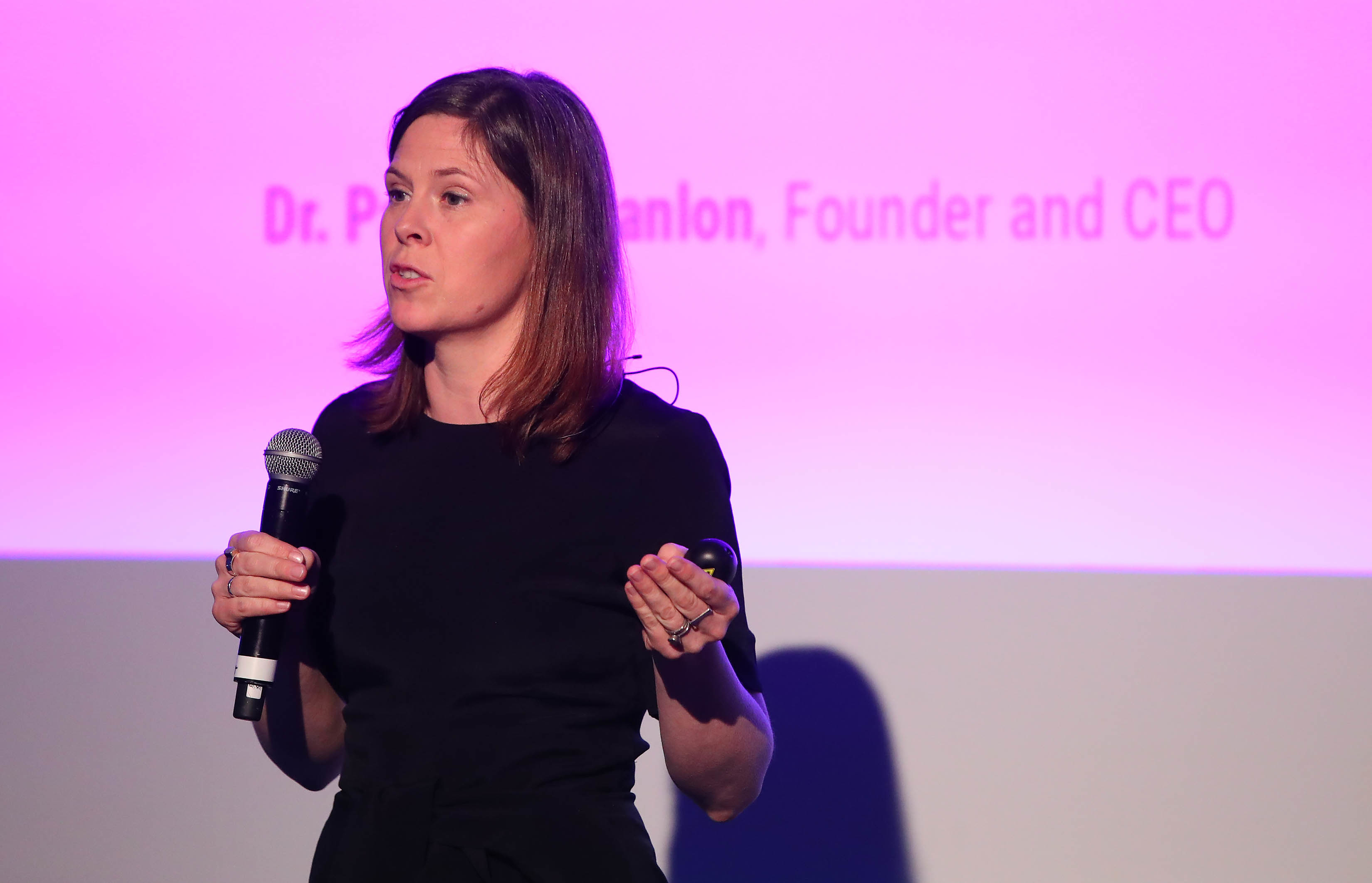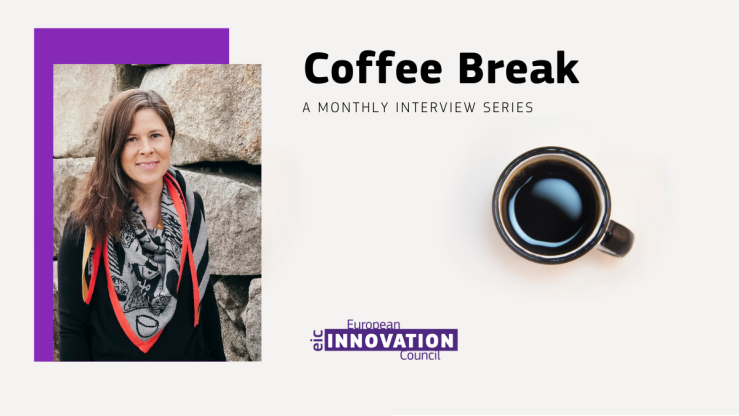Every month, during a Coffee Break, we dive into the stories of EIC innovators and get a glimpse of the persons behind the start-ups. Today’s guest is Patricia Scanlon, the founder and CEO of SoapBox Labs. Patricia has over 20 years’ experience in the fields of artificial intelligence & speech recognition technology. In 2013, she founded SoapBox Labs, an award-winning voice technology for kids company in Dublin and, since then, the accolades keep coming. Scanlon was one of two Irish women named by Forbes magazine in its global “top 50 women in tech” ranking in 2018. Discover the entire Soapbox story in the EIC Coffee Break of November.
Tell us how the idea of your innovation started. Was it something that was bouncing in the back of your head for a long time?
I spent my career in the area of research and innovation, specifically in speech recognition. During and after my PhD, I worked in places like IBM research and Bell Labs. In 2013, I started observing my four-year-old daughter using an education app. The game was about early-stage literacy and letter sounds, and they were sending me emails with updates on her progress. The results looked good, but when I quizzed her on them, she didn’t know the answers.
After investigating more, I realised what they were doing: they were playing the sound, then giving multiple choice options for her to choose from as answers. It was a cute game, but I realised that when she got an answer wrong, she was just choosing the other option. My daughter was discovering how to play with the system, how to hack it, but she was not learning. The game was trying to teach her the letter sounds, but without any expressive assessment, without ever listening to her. For me, having spent my entire career working on speech recognition, this was an obvious gap. We had good technologies on the market like Siri or Google, but there’s a big difference between speech recognition for adults and speech recognition for kids. At that moment, I decided to understand the reason behind this gap, I quit my job, and I embarked on this journey.
How did your family react to your switch?
My family was not surprised because they probably always listened to me talking about things I would like to do and research. When you work for a multinational, the decision-makers are many levels above you. You may identify something and believe there’s a value proposition, but somebody else gets to decide whether you proceed with it or not, which can be very frustrating. My family, they realised that I needed to do something entrepreneurial because of that and that it was a good for me.

What advise can you give to people who are currently playing with the idea of starting a company and becoming potential entrepreneurs?
I advise talking with a lot of people. Your family and friends will probably tell you what you want to hear, so speak to objective people. But I also advise being careful with who you listen to. There are a lot of people that will give you advice, but you need to know if they have done this before. And you also have to trust yourself. If your idea doesn’t resonate with the decision-makers and people with the money, they will think it’s a bad idea. You have to listen to yourself first before you’re ready to listen to other people.
Can you tell us about a tough moment you had at your company and how you pushed through?
I think the toughest point for a lot of founders is fundraising. It’s extremely important to consider what kind of investors you’re interested in attracting. It’s as important as your co-founder is, your funding team or your executive team. You’re going to spend a lot of time with these people. It’s a long journey and you must do your due diligence on your investors as much as they do their diligence on you.
When we were raising our seed funding in 2015, everybody loved AI. They had this idea that AI was this great thing, but very few people understood the challenges around building world-class AI. Our concern was that we were going to get the wrong investors, people who didn’t believe what we were making and didn’t have the patience to work on world-class technology. I strongly believe that with AI and machine learning, you can bring a product to the market very quickly, but a mediocre one that won’t change the world. A few people may adopt it because it’s a novelty, but it won’t retain or get widespread adoption. We always had a deep-tech disruptive innovation in mind, and we looked for investors who understood that and who would support us from the very beginning. It wasn’t easy to find the right investors, it took a long time, but it was a fantastic learning experience for us. We raised our first seed funding in early 2017, and the EIC grant came a year after, in 2018. It was the perfect time to go deeper with our technology.

What books inspired you in this journey?
I’m actually reading ‘The Tibetan Book of Living and Dying’. Our mission as a company is mainly to have a social impact, and I always find that life gives you the biggest picture and perspective. Steeping back helps you to handle the anxiety and stress of daily life. I realise that we all need perspective in life before we get overly consumed with the day to day. I think it’s healthy, it allows you to take risks and it will enable you to aim big.
If you could talk business over lunch with a large corporate CEO or global leader, which one would you choose and why?
From a leadership point of view, I would choose Jacinda Ardern, Prime-Minister of New Zealand. I admire what she has done and how she had led the country during the COVID crisis with empathy and strong, decisive leadership. I think that’s something any CEO could look at and learn from. We can build companies in very different ways, but cultivating empathy always needs to be a part of the journey.

DISCLAIMER: This information is provided in the interest of knowledge sharing and should not be interpreted as the official view of the European Commission, or any other organisation.

